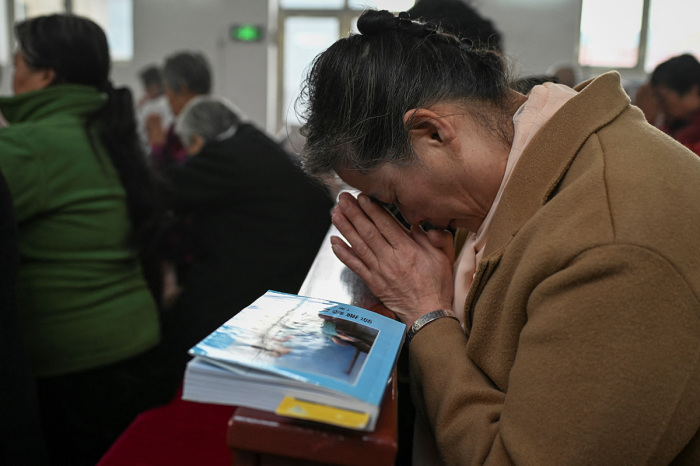China ramps up new restrictions on Christian content on the internet

The Chinese Communist Party, which has been criticized for targeting Christians and wielding its power of internet censorship through big tech companies, is putting even more restrictions on the religious freedom of its citizens with a new law regulating online religious content, according to a report.
The new legislation, known as Administrative Measures for Internet Religious Information Services, which was promulgated last month, will be enacted on March 1, reports Bitter Winter, a publication produced by the Center for Studies on New Religion which covers human rights issues in China.
The law mandates an “Internet Religious Information Service License” for any religious group that wants to disseminate religious content on the internet. But it says only “legally established” organizations can do so, which practically means only groups that are part of the five authorized religions in China can use the internet to distribute religious content.
Open Doors USA, which covers persecution in over 60 countries, estimates that China has more than 97 million Christians, many of whom worship in unregistered or so-called “illegal” underground churches.
The five state-sanctioned religious groups in China are the Buddhist Association of China, the Chinese Taoist Association, the Islamic Association of China, the Protestant Three-Self Patriotic Movement and the Chinese Patriotic Catholic Association.
Even the organizations within the five authorized religions are subject to surveillance and limitations, Bitter Winter reports.
As per the new law: “[T]hey can broadcast sermons and lessons, but these would be checked by the authorities for their ‘Sinicized’ content, making sure they promote socialist values and support the party, and are not intended as proselytization tools. Religious universities and colleges may disseminate content via the internet only to their students. Any attempt to spread religious content to minors or ‘induce minors to believe in religion’ will lead to the termination of the license.”
Without the license, it will be severely prohibited to share images or comments on “religious ceremonies such as worshiping Buddha, burning incense, taking ordination, chanting, worship, mass and baptisms.”
The law follows complaints by President Xi Jinping that prohibitions on the use of the internet to “advertise” religion are not enough to prevent “religious propaganda.”
Last May, when another set of regulations on religion went into effect in China, communist authorities removed Bible apps and Christian WeChat public accounts, including “Gospel League” and “Life Quarterly,” the U.S.-based persecution watchdog International Christian Concern reported at the time.
Bookstores owned by the state-sanctioned Three-self churches had increasingly been selling books that promote President Xi Jinping’s thoughts and communist ideology, ICC added.
In October 2020, internet censorship targeting Christians in China became so severe that even official government-sanctioned Christian groups started using the Chinese Pinyin initials “JD” to replace Chinese characters for “Christ,” China Aid reported at the time.
In 2018, the Chinese government banned the sale of Bibles at online bookstores across the country to comply with a “white paper” that dictated compliance with the “core values of socialism.”
Australia's ABC News reported at the time that copies of the Gospels had been removed from online retailers following the release of a regime document titled “China’s Policies and Practices on Protecting Freedom of Religious Belief.”
The white paper declared that Chinese faith communities “should adhere to the direction of localizing the religion, practice the core values of socialism, develop and expand the fine Chinese tradition and actively explore the religious thought which accords with China's national circumstances.”
China ranks as the 17th-worst country globally when it comes to Christian persecution on Open Doors USA’s 2021 World Watch List.




























